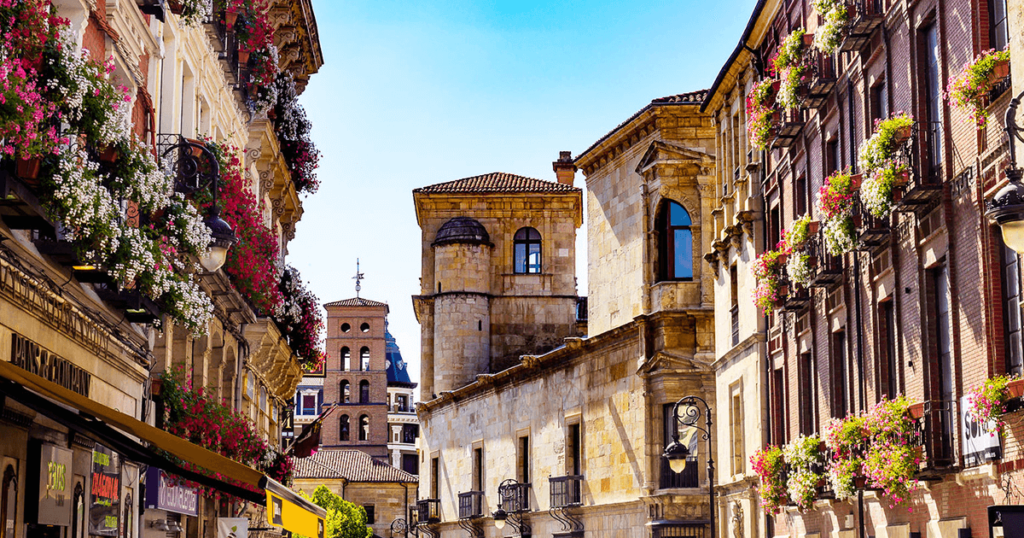
It wasn’t summer yet, but time was flying by, and the end of June was coming up, when school lets out all across Spain. Students in their last year of high school get out a month earlier, but these girls were only 16. “What are you doing this summer?” I asked one of them. I wanted to reinforce the lesson on “going to be” for future plans, “will” for predictions, but mostly I was curious.
“I don’t have any plans,” she said, pausing with a frown on her face. “What’s the word for … ?” she asked, letting her sentence trail off.
“Fixed?” I suggested. “No fixed plans.”
“Yes,” she agreed, flashing a smile, “that.”
“What do you think you might do?”
She shrugged. “I’ll go to León, probably, like last year.” She showed not a trace of enthusiasm, so I supplied it.
“Oh! León! What’ll you do there?” I guessed she was referring to the province, not the city.
“Go to camp.”
Summer language camps with native English speakers sent over from England to monitor games and activities for Spanish kids are popular. But my student assured me this was not a language camp. Nor a sports camp, she said when I asked, knowing she’s a basketball player. She’s a beautiful girl with dimples and lively eyes, so I’m always surprised when her voice is flat and dull, expressionless, like a slat of unfinished wood.
“So what will you do at camp?”
“Play,” she answered, her voice a very short slat.
Play, I wondered, studying her. You’re almost 17. Your favorite activity is meeting friends in the park where you gossip about schoolmates who aren’t in your circle. You laugh about the two teachers suspected of carrying on an affair. You don’t smoke but your best friend does. You’ve lied to your mother. You know how to work your grandmother so she’s always on your side. You’ve cheated on a test. You won’t eat lettuce. You adore your father and he adores you. You long ago learned how to hide your phone in the folds of your backpack to permit surreptitious glances during class. You smile when caught. But play? I went to a summer camp at 14, where I swam and rode and did crafts, and when I was 15, a pair of close friends and I had adventures and had fun, but did we play?
I thought about telling my student that another word would be better. But what word? I was her teacher, and if I didn’t know, I couldn’t hope she would. So play it stayed. And maybe that’s right. Maybe no matter how long the afternoons doing very little of consequence, no matter how same the days, or how burning the sun, how languid her movements by the pool at the camp where I picture her, in some remote village, high, arid, chilly at night, hot all day, and maybe no matter how narrow her eyes squinting into the bright sunlight of León, or how sultry her voice, how ringing her laugh at some new bit of scandal— maybe no matter what, she knows none of it’s to be taken too seriously, and that makes it play. Perhaps she’s still there, right now. Sixteen, charming, beautiful. Let the days be long. Let play go on.

